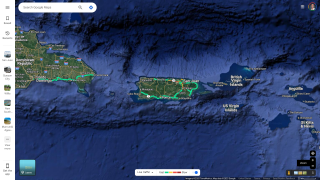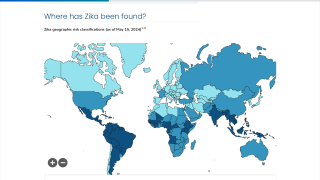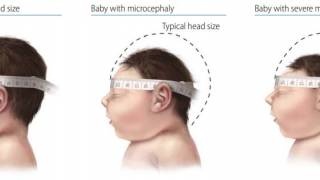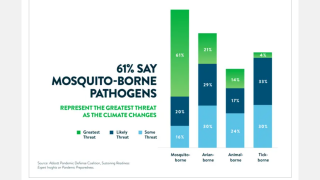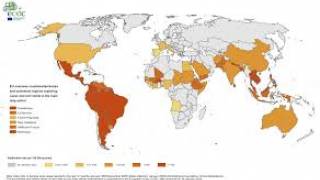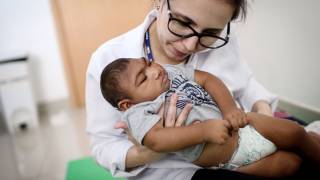Puerto Rico’s Insufficient Condom Use

A new study may have found one reason why Puerto Rico’s Zika virus outbreak has been so extensive. And why Zika cases continue to be reported in 2019.
Although transmission of the Zika virus primarily occurs through the bite of an infected mosquito, it can also be transmitted by having intercourse with an infected partner.
The first locally-acquired case of the Zika virus disease in Puerto Rico was identified in early December 2015.
To alert people of their Zika risks, the Centers for Disease Control and Prevention (CDC) released guidance in 2016 for the prevention of sexual transmission of Zika virus for pregnant women and couples planning to conceive.
One of the prevention methods focused on the use of condoms.
But, this new study published online on September 27, 2019, found less than 25 percent of 2,364 women surveyed in Puerto Rico reported consistent condom use during pregnancy in 2016.
In areas where the Zika virus transmission was active, the CDC said ‘pregnant women and their male partners were advised to consistently and correctly use condoms when having intercourse or to abstain from intercourse during pregnancy to reduce the risk for sexual transmission of Zika virus.’
Additionally, during 2016, the CDC and the American College of Obstetricians and Gynecologists released interim guidance outlining the need for healthcare providers to offer to counsel about recommended prevention measures to women and their partners, who were at risk for exposure to Zika virus infection.
The good news from this CDC study published in the November 2019 edition of Emerging Infectious Diseases, shows healthcare provider counseling was associated with a 3-fold increase in condom use.
This new data reinforces the value of healthcare provider counseling to patients.
Furthermore, these researchers say ‘healthcare providers in various settings can play a useful role in the prevention of sexual transmission of Zika virus infection by counseling pregnant patients on the importance of consistent and correct condom use.’
‘These findings can be used to target and further refine Zika prevention messaging and interventions and can apply more broadly to the prevention of other sexually transmitted infections during pregnancy, such as syphilis and genital herpes that, if left untreated, can increase the risk for adverse maternal and infant outcomes.
This study’s finding is important since a Zika virus infection during pregnancy can cause brain abnormalities.
A recent study found pregnant women who become infected with Zika early in pregnancy were 17 times more likely to deliver a baby suffering from Microcephaly, and other negative health conditions.
Microcephaly is a rare neurological condition in which an infant's head is significantly smaller than the heads of other children of the same age and sex. Microcephaly can be caused by a variety of genetic and environmental factors, and often have developmental issues.
Unfortunately, Puerto Rico continues reporting locally-acquired Zika cases.
As of September 5th, there have been 32 Zika cases acquired through presumed local mosquito-borne transmission in Puerto Rico.
And in the continental USA, all of the reported Zika cases have been ‘travel-related, led by California and Florida.
The California Department of Public Health recently reported 25 travel-associated Zika virus infections in California residents during 2019.
And, the state of Florida reported 33 travel-related Zika virus cases as of September 13, 2019.
The CDC continues to alert international travelers of their risk saying ‘since there is no vaccine to prevent Zika, the best way to prevent diseases spread by mosquitoes is to protect yourself and your family from mosquito bites.’
And, avoid visiting countries with ongoing Zika virus outbreaks, such as Cuba, Mexico, and Puerto Rico.
At the time of this CDC study, Ms. Salvesen von Essen was the coordinator of the Pregnancy Risk Assessment Monitoring System–Zika Postpartum Emergency Response Study at the Puerto Rico Department of Health, San Juan, PR. She is currently a project coordinator for the Pregnancy Risk Assessment Monitoring System Opioid Activities in the Division of Reproductive Health, National Center for Chronic Disease Prevention and Health Promotion, CDC, Atlanta, GA.
No conflicts of interest were disclosed.
News published by Zika News
Our Trust Standards: Medical Advisory Committee
- CDC: Preventing Sexual Transmission of Zika Virus Infection during Pregnancy, Puerto, Rico, USA, 2016
- CDC: Counseling Travelers on Zika Virus Risks
- CDC: Local Transmission of Zika Virus — Puerto Rico, November 23, 2015–January 28, 2016
- U.S. pregnant women’s knowledge and attitudes about behavioral strategies and vaccines to prevent Zika acquisition
- Zika knowledge and prevention practices among U.S. travelers: a large cross-sectional survey study


